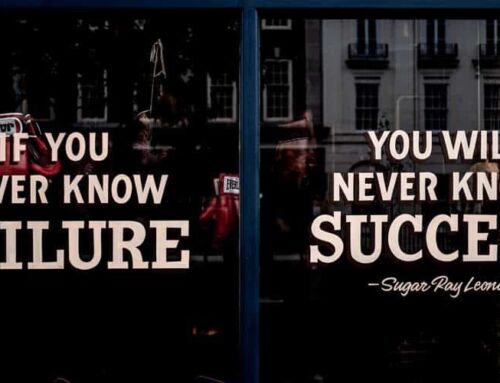For about a year, I held a factory job, performing quality control tests and working on creating a database to organize the results. It was enjoyable work, with pleasant colleagues, providing some of my earliest computer training in SQL.
If music is your calling (passion, vocation, obsession)—then you might be familiar with this conundrum:
- You want to be employable in a “survival job” or alternate career to supplement your income;
- You’re not sure where to start looking for employment that will help meet your needs AND leave time and energy for practice, performance, and maintaining your music career; and
- You don’t know how to “fit” your life as a musician into job application checkboxes (experience, qualifications, and all the rest). Are you employable?
Does this sound like a road you’ve traveled? Try these tools for owning your status as a musician (rather than running away from it or obscuring it), in the world of “survival jobs.”
Know thyself
Are you absolutely clear about what type(s) of work you are willing to do, able to handle, and interested in? Save yourself (and HR managers) time and stress by avoiding applications that are unlikely to match your skill set. Don’t think your soul can bear flipping burgers? Choose something else. Would a part-time office job be a better fit? Apply to five of them. Increase quality, not quantity. More is not necessarily better—BETTER is better. And keep your mind open to possibilities you haven’t previously considered. Ask people in your network what they did (or do) for “survival jobs.” You might be surprised, and get some unexpected ideas. Maybe even a job offer.
Get creative—while telling the truth
If a position description seems to fit, find echoes of the required characteristics in your musical life and business:
Customer service
Do you sell merchandise at your shows? Respond to fan questions in a helpful manner? You have good customer service skills. Talk about them in your cover letter, resume, and interview. Choose a brief story to tell, about an instance when you solved a fan’s (customer’s) problem by prioritizing their needs while maintaining your own standards.
Attention to detail/organization skills
Most employers consider organization skills a must, though some workers lack the ability to effectively handle details and logistics. Do you manage a complex touring and/or teaching schedule? Can you file your own taxes as a sole proprietor, or calculate the ideal CD or t-shirt inventory numbers? Discuss your innovations in organizing your career/life balance, and demonstrate how that experience could benefit the company where you’d like to work. Tell a story and prove it with a bit of quantitative data. For example: “I organized the band’s touring schedule” becomes compelling and provable when you re-state it as: “In 2013, I organized over 100 live performance events in 7 states, involving 6 musicians and over $5,000 worth of mobile equipment.”
Computer proficiency
If you do your own social media, keep schedules and/or correspondence in a commonly used e-mail or cloud service, you likely already know enough to handle the hardware or software that a typical “survival” job will throw at you. If not, then be honest. Don’t claim skills you don’t have or couldn’t easily and quickly learn.
Highlight and use your status as a musician—don’t hide
If you are applying for a part-time job, be sure to discuss your scheduling flexibility—you may be more desirable than someone looking for full-time hours. If the position involves travel, you may be able to book tour stops in tandem with your work events. If you have a degree in music, you have a proven record of dedication to your craft, as evidenced by long and consistent patterns of practice, a multifaceted education focused on critical thinking and problem solving, and an open mind that thrives in creative environments. You likely have many talents relevant to musical and non-musical tasks:
Fast learner: able to figure out computer problems as easily as you can transcribe a saxophone solo
Leadership skills: your dual role as musical director and booking manager
Budgeting: your history of finding or creating gigs that pay
Be confident that you have something of value to offer to many types of companies, from Apple to Zappos. You never know: the boss could be a musician or music fan too—and looking to give you a great opportunity.
How did I get so lucky with that factory job? The boss was a guitarist, like me. He wanted someone creative to join the team of engineers and accountants. He believed musicians were clever, and more open to creative problem solving. Just like him.

Free Guide: 8 Ways Having a Coach Can Help You Become More Successful in Music
This guide shares eight ways hiring a coach can make you a more successful, profitable, and full-time music creator.
When you understand how a music career coach can get you farther, you’ll be ahead of other music creators growing their music career.
Free Guide: 8 Ways Having a Coach Can Help You Become More Successful in Music
This guide shares eight ways hiring a coach can make you a more successful, profitable, and full-time music creator.
When you understand how a music career coach can get you farther, faster, you’ll be ahead of other music creators attempting to grow their music career.



